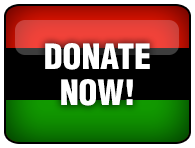15 Things You Did Not Know about the History of Black People in London before 1948
By Charmaine Simpson, December 2012
Black people came from all over Europe and Africa and settled in London where their presence is significant but little known. The presence of Africans in England dates back to at least the Roman period when African soldiers who served as part of the Roman army were stationed at Hadrian’s Wall during the 2nd century AD. Septimus Severus, the emperor who was born in Libya, spent his last three years in Britain before he died in York in 211AD.
I will present 15 facts aimed at raising the level of knowledge and uncovering the hidden histories of people of African and Caribbean descent who have contributed to London before 1948.
- The earliest known record of a Black person living in London is of “Cornelius a Blackamoor” whose burial on 2nd March 1593 was recorded in the parish register at St Margaret’s Church in Lee.
- Olaudah Equiano (1745 -1797) was one of the most prominent Africans involved in the British movement towards the abolition of the enslavement of Africans. He was a prominent member of the ‘Sons of Africa’, a group of 12 Black men who campaigned for abolition. In 1789, he wrote his autobiography ‘The Interesting Narrative of the Life of Olaudah Equiano, or Gustavus Vassa, the African’ which depicted the horrors of slavery and helped influence British lawmakers to abolish transatlantic enslavement through the Slave Trade Act of 1807. However, no enslaved people were freed by the Act – so the struggle continued.
- Ignatius Sancho (c1729-1780), the composer, actor, writer and businessman was the first Black person known to have voted in Britain in 1774 and 1780. Sancho was also the first African prose writer whose work was published in England.
- William Cuffay (1788 – 1870) was a Black tailor who lived in London. He was one of the leaders and martyrs of the Chartist movement, the first mass political movement of the British working class.
- In 1773, Phillis Wheatley (1753-1784) is the first African-American woman to have her book published ‘Poems on Various Subjects, Religious and Moral’. The book was published in London with the help of the Countess of Huntingdon.
- Mary Prince (1788 – c.1833) was the first Black woman to write and publish an autobiography ‘The History of Mary Prince: A West Indian Slave,’ an account of the horrors of life on the plantations enslavement, published in Britain c.1831. Mary Prince was also the first woman to present an anti-slavery petition to Parliament.
- J.S Celestine Edwards (1858-1894) was the first Black man to edit a White-owned newspaper Lux (1892-1895), the weekly Christian Evidence Newspaper. He was also the editor of its monthly journal ‘Fraternity (1893-1897)’ which reached a circulation of more than 7000.
- The ‘Africa Times and Orient Review’ is the first political journal produced by and for Black people ever published in Britain. Duse Mohamed Ali, an Egyptian Nationalist and Pan Africanist Journalist founded The African Times and Orient Review in London in July 1912. It was printed in Fleet Street in London. Marcus Garvey was a staff writer at the newspaper.
- In 1931, Dr Harold Moody (1882-1947) founded the League of Coloured Peoples (LCP) in 1931, the first Black pressure group and the largest British Pan-African organisation in the 1930s and 1940s.
- Una Marson (1905-1965) was the first Black female broadcaster at the BBC from 1939 to 1946. Una Marson, born in Jamaica in 1905, was a poet, publisher and activist for racial and sexual equality. She was a secretary to the League of Coloured Peoples as well as many other organisations including the Women’s International League for Peace.
- Henry Sylvester Williams (1869-1911) helped to found the African-Association, which lobbied for human rights in the colonies and was instrumental in holding the first Pan-African Conference in London (1900).
- John Richard Archer (1863-1932) became London’s first Black Mayor on 10th November 1913 aged fifty years old when he was elected mayor of Battersea.
- Amy Ashwood Garvey (1897- 1969) was a playwright, lecturer and Pan-Africanist who founded the Nigerian Progress Union in London in 1924. She became an important figure in the anti-racist movement in England. In 1959, she chaired an enquiry into race relations following the racially motivated murder of Kelso Cochrane in London. In the wake of the Notting Hill riots in 1958, she co-founded the Association for the Advancement of Coloured People.
- The West African Student Union (WASU) was one of the most important political organisations in Britain from the 1920s until the 1960s. Members included Kwame Nkrumah, Nnamdi Azikiwe, Fela Anikulapo Kuti and Joseph Appiah who played an important role agitating for an end to colonial rule in Britain’s West African colonies.
15. Elisabeth Welch (1904-2003) was one of the first Black people to have her own BBC radio series in 1935, Soft Lights and Sweet Music, which made her a household name in Britain.

